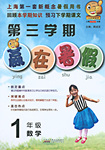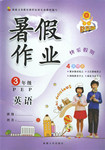
About ten years ago, a young and very successful businessman named Josh was traveling down a Chicago neighborhood street. He was going a bit too fast in his shiny, black, 12 cylinder Jaguar XKE, which was only two months old.
He was watching for kids rushing out from between parked cars and slowed down when he thought he saw something. As his car passed, no child came out, but a brick sailed out and — WHUMP! — it hit the Jag’s shiny black side door! SCREECH...!!!! Immediately Josh stopped the car, jumped out, seized the kid and pushed him up against a parked car. He shouted at the kid, "What was that all about and who are you? Just what the heck are you doing?!" Building up a head of steam, he went on. " That’s my new Jag, that brick you threw is gonna cost you a lot of money. Why did you throw it?"
"Please, mister, please....I’m sorry! I didn’t know what else to do!" begged the youngster. "I threw the brick because no one else would stop!" tears were streaming down the boy’s face as he pointed around the parked car. "It’s my brother, mister," he said. "He rolled of the curb (路沿) and fell out of his wheelchair and I can’t lift him up. "Sobbing, the boy asked the businessman," Would you please help me get him back into his wheelchair? He’s hurt and he’s too heavy for me.
Moved beyond words, the young businessman tried hard to swallow the rapidly swelling lump in his throat. Straining, he lifted the young man back into the wheelchair and took out his handkerchief and wiped the scrapers and cuts, checking to see that everything was going to be OK. He then watched the younger brother push him down the sidewalk toward their home.
It was a long walk back to the black, shining 12 cylinder Jaguar XKE — a long and slow walk. Josh never did fix the side door of his Jaguar. He kept the dent (凹痕) to remind him not to go through life so fast that someone has to throw a brick at him to get his attention. Feel for the bricks of life coming at you.
The boy threw a brick at the businessman’s car because ________.
A. the businessman drove at a high speed
B. he envied the brand-new car very much
C. he wanted to ask for some money
D. he wanted to get help from the driver
Which of the following is the right order of the story?
A. The younger brother threw a brick at Josh’s car.
B. The elder brother fell out of his wheelchair.
C. The younger brother begged Josh for help.
D. Josh lifted the elder brother back into his wheelchair.
e. Josh shouted at the younger brother.
A.b, a, e, c, d B. a, c, d, b, e C. b, a, c, e, d D. a, c, b, e, d
What can we learn from the passage?
A. Josh would accept the money from the kids.
B. The two kids were Josh’s neighbors.
C. Josh was a kind-hearted man.
D. Josh’s new car broke down easily.
according to the passage, the last sentence means ________.
A. trying to get ready for the trouble in your future life
B. driving fast in a neighborhood street is dangerous
C. trying to be more understanding seeing others in trouble
D. protecting oneself from being hurt
 第三学期赢在暑假系列答案
第三学期赢在暑假系列答案 学练快车道快乐假期暑假作业新疆人民出版社系列答案
学练快车道快乐假期暑假作业新疆人民出版社系列答案科目:高中英语 来源:2016届四川成都南片区六校联考高一上学期期中考试英语试卷(解析版) 题型:阅读理解
This year some twenty-three hundred teenagers (young people aged from 13 to 19) from all over the world will spend about ten months in US homes. They will attend US schools, meet US teenagers, and form impressions of the real America. At the same time, about thirteen hundred American teenagers will go to other countries to learn new languages and gain a new understanding of the rest of the world.
Here is a two-way student exchange in action. Fred, nineteen, spent last year in Germany with George’s family. In turn, George’s son Mike spent a year in Fred’s home in America.
Fred, a lively young man, knew little German when he arrived, but after two months’ study, the language began to come to him. Schools were completely different from what he had expected—much harder. Students rose respectfully when the teacher entered the room. They took fourteen subjects instead of the six that are usual in the United States. There were almost no outside activities.
Family life, too, was different. The father’s word was law, and all activities were around the family rather than the individual(个人). Fred found the food too simple at first. Also, he missed having a car.
“Back home, you pick up some friends in a car and go out and have a good time. In Germany, you walk, but you soon learn to like it.”
At the same time, In America, Mike, a friendly German boy, was also forming his idea.“I suppose I should criticize(批评) American schools,” he says. “It is far too easy by our level. But I have to say that I like it very much. In Germany we do nothing but study. Here we take part in many outside activities. I think that maybe your schools are better in training for citizens(公民). There ought to be some middle ground between the two.
1.The world exchange programme is mainly to ________.
A.help teenagers in other countries know the real America
B.send students in America to travel in Germany
C.have teenagers learn new languages
D.let students learn something about other countries
2.Fred and Mike agreed that ________.
A.American food tastes better than German food.
B.Americans and Germans were both friendly
C.German schools were harder than American schools
D.There were more cars on the streets in America
3.What is special in American schools is that ________.
A.there is some middle ground between the two teaching buildings
B.students go outside to enjoy themselves in a car
C.students usually take fourteen subjects in all
D.there are a lot of after-school activities
4.After experiencing the American school life, Mike thought _________.
A.German schools trained students to be better citizens
B.A better education should include something good from both America and Germany
C.American schools were not as good as German schools
D.The easy life in the American schools was more helpful to students
查看答案和解析>>
科目:高中英语 来源:2014届河北高阳中学第一次月考英语卷(解析版) 题型:短文改错
假定英语课上老师要求同桌之间交换修改作文,请你修改你同桌写的以下作文。文中共有10处语言错误,每句中最多有两处。错误涉及一个单词的增加、删除或修改。
增加:在缺词处加一个漏字符号(∧),并在其下面写出该加的词。
删除:把多余的词用斜线(\)划掉。
修改:在错的词下划一横线,并在该词下面写出修改后的词。
注意:1. 每处错误及其修改均仅限一词;
2.只允许修改10处,多者(从第11处起)不计分。
Last Sunday I witness a traffic accident on my way home. I was wandering down the sidewalk while there went loud crash. Two taxis crashed into each other about ten meters far away. I went up and found the two drivers bad injured, bleeding and trap in the taxis. Luckily, they were rescued on time because people came to help them and called an ambulance. As was clear that the taxi drivers were so eager to take more passengers that they drove too fast. It reflected their lack of concern for the safe of both others and them.
查看答案和解析>>
科目:高中英语 来源:陕西省2010届高三第七次模拟考试英语试题 题型:其他题
SALESMAN: Hi, young lady. Can I help you?
CUSTOMER: 6
SALESMAN: Okay. How about getting your father a new wallet?
CUSTOMER: Hmm. How much is that black wallet?
SALESMAN: Oh. It’s only $ 40.95.
CUSTOMER: 7
SALESMAN: Hmm. How about this brown leather one? It’s $25.99.
CUSTOMER: Um... I don’t think my father will like the design on the outside, and it doesn’t have a place to put pictures. Besides, I don’t have that much money.
SALESMAN: 8
CUSTOMER: I’m not sure. Probably about ten dollars or so. I’ve been helping my mom around the house for the past week to earn some money. This is all I have.
SALESMAN: 9
CUSTOMER: That’s really pretty, but the price tag says $13.99, and I know I don’t have that much.
SALESMAN: Well, let’s just say the tie went on sale. How about $5? What do you say?
CUSTOMER: 10
|
A.Okay. How much do you have to spend? |
|
B.Excuse me, where can I buy this kind of camera? |
|
C.Well... yeah. I’m looking for a Father’s Day gift. |
|
D.Oh, thanks, I’ll take it. |
E. Huh? That’s too expensive for me. Do you have a cheaper one?
F. Hmm. How about this tie?
查看答案和解析>>
科目:高中英语 来源:2010年江西省高三10月月考英语卷 题型:阅读理解
Scientists in Canada say big fish have almost disappeared from the world since the start of industrial(产业的) fishing in the 1950s. The scientists found the numbers of some kinds of large fish have dropped by ninety percent in the past fifty years.
The study took ten years. The researchers gathered records from fishing businesses and governments around the world. The magazine Nature published the findings.
The scientists say the common method called long line fishing ravages the populations of large fish. This method involves many fishing lines connected to one boat. These wires can be nearly one hundred kilometers long. They hold thousands of sharp metal hooks to catch fish.
Long line fishing is especially common in the Japanese fishing industry. Records showed that Japanese boats used to catch about ten fish for every one hundred hooks. But long line fishing boats now might only catch one fish per hundred hooks.
The scientists say industrial fishing can destroy groups of fish much faster than in the past. The study suggests that whole populations can disappear almost completely from new fishing areas within ten to fifteen years.
Ransom Myers and Boris Worm of Dalhousie University in Nova Scotia led the study with the University of Kiel in Germany. Worm says the destruction could lead to a complete reorganization of ocean life systems. Meyers says the decreased numbers of large fish are not the only worry. He says even populations that are able to reproduce do not get the chance to live long enough to grow as big as their ancestors. He says not only are there fewer big fish, but also they are smaller than those of the past.
It’s the end of this program ,Thank you for your listening.
1.What’s the best title for the passage?
A. Big fish are disappearing B. Long—line fishing in Japan
C. The harm of industrial fishing D. Stop killing big fish
2.Which of the following DOESN’T show that the populations of big fish are smaller than before?
A. Fish can disappear almost completely from new fishing areas.
B. Now long—line fishing boats might catch one fish per hundred hooks.
C. Fish now don’t have the chance to grow big enough.
D. Scientists spent ten years studying the populations of large fish.
3.What can we learn from the passage?
A. The number of big fish started to drop greatly about fifty years ago.
B. The study was started by Boris Worm of Dalhousie alone.
C. There will be no big fish left in fifty years .
D. Japaneses people have stopped catching big fish.
查看答案和解析>>
科目:高中英语 来源:0910学年广东省湛江市高一第一学期期末考试 题型:单词拼写
Ⅳ 写作(共两节,满分40分)
第一节语法填空(共10小题;每小题1.5分,满分15分)
按照句子结构的语法性在空格处填入一个适当的词或使用括号中词语的正确形式或根据首字母填空,并将答案填写在答题卡标号为60-70的相应位置上。
61. A ______(culture) relic is often something old that reminds us of the past.
62. She entered the room, with a _________(light) candle in her hand.
63. The ________(wood) sofa we bought form the market seems to be very comfortable.
64. It was a hot day. The boy headed for the swimming pool________ (secret).
65. It was also a treasure ________(decorate) with gold and jewels, which took the country’s best artists about ten years to make it.
66. The Great Wall of China is recognized as one of the w_____ of the world.
67. Both parents were killed in the earthquake, but the children s______.
68. As we all know, the Tang D________ is a long period in Chinese history.
69. There is some doubt ___________ he will go abroad for further study.
70.He is competing with his classmates ____________ the scholarship(奖学金).
查看答案和解析>>
湖北省互联网违法和不良信息举报平台 | 网上有害信息举报专区 | 电信诈骗举报专区 | 涉历史虚无主义有害信息举报专区 | 涉企侵权举报专区
违法和不良信息举报电话:027-86699610 举报邮箱:58377363@163.com